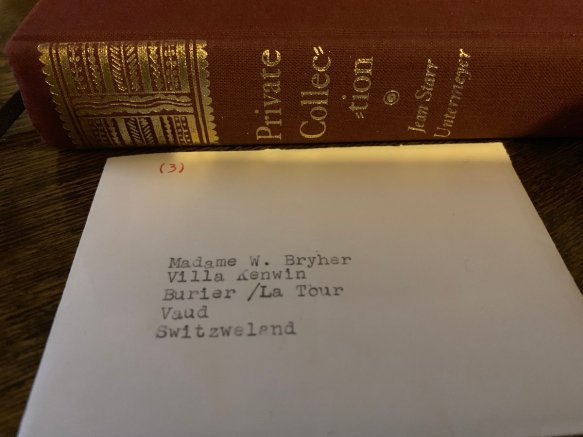
“Throughout this narrative I have confined myself largely to one aspect of my life, since circumstances, and it may be, destiny itself, placed my adult life chiefly among the literary. For the sake of formal veracity, I have kept my communications for the most part within the framework of the literary art and its makers. For that is what it is–merely a framework of an inner activity so personal, so probing, so demanding, so unceasing, that I can scarcely hint at it.”
A perspective of art, particularly poetry and music, as a pinnacle of its age, as an embodiment of vital personality in contrast to, and refuge from, vapidity and conformism, is implied in Jean Starr Untermeyer’s literary memoirs, as well as the personalities that are her subjects.
Wittgenstein often expressed the idea that philosophy should only be written as one would write poetry. (“I think I summed up my attitude to philosophy when I said: philosophy ought really to be written as form of poetic composition.”) This belief goes to the core of what Hermann Broch thought to be the primary function of the novel. Inevitably, in the finest chapter of Untermeyer’s memoir she relates the experience of working with Broch on the simultaneous translation into English of his The Death of Virgil. The word for word, comma by comma, translation partnership is fascinating to read about as the tension rose towards the book’s publication. This five-year literary engagement to turn into English a deeply philosophical work that Stefan Zweig deemed untranslatable is extraordinary and would have perhaps failed but for the impact Broch’s work made to Untermeyer’s life, her absorption in the task almost an act of therapy for the losses, both actual and spiritual, that preceded it.
It isn’t just the Broch relationship that makes this memoir compelling. Untermeyer and her husband made their lives among poets, musicians and artists in America and Europe, and this book tells of a lifetime of verse recitations, music making and intellectual discussion. It is a portrait of what appears from today’s perspective a golden age.
[That my edition of these memoirs is a presentation copy that Jean Starr Untermeyer gave in person to the poet Bryher makes it an especially valuable addition to my library.]

Thanks for the share – I love the point that Philosophy should be like a poetry 😊
My pleasure. Thank you for reading and commenting.
You are welcome
You’ve made me want to read this. A generous and elegant review..
Thank you very much. I am so pleased that you wish to read it.
Thanks to your post, I’ve moved The Death of Virgil considerably higher up on my reading list, particularly since I already it on the shelf. And kudos on the signed Untermeyer/Bhyher book!